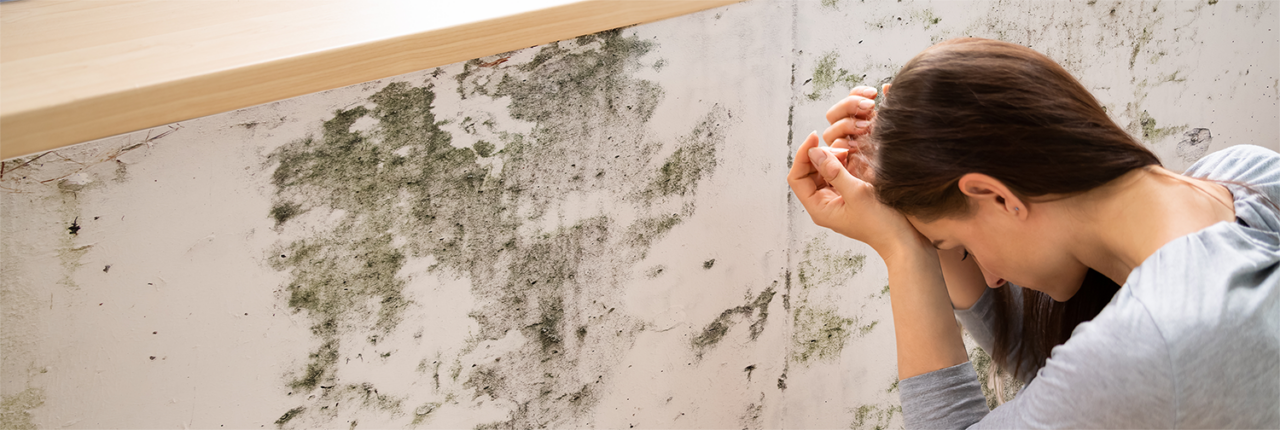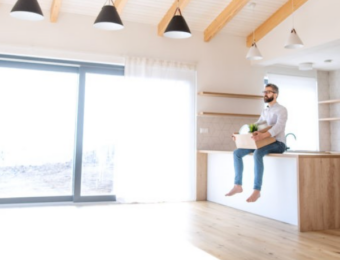
Who is responsible for mould? Landlords or Tenants?

Mould is a problem in many properties and affects both landlords and tenants alike. Damp leading to mould can lead to serious issues in a property which can become costly to landlords, and harmful to tenants’ health. So, who is responsible for dealing with mould if it appears in your property?
What Causes Mould?
Mould typically forms as a result of 3 causes, penetrating damp, rising damp and condensation.
Condensation:
In most rental properties, condensation is the most common cause of damp. Condensation forms when excess moisture in the air comes into contact with a cold surface. This usually happens on a window but can also happen on a wall. Condensation is usually more of a problem in the wintertime, and often happens when insulation or heating is not working effectively or there is insufficient ventilation in the property. Luckily, condensation is the easiest cause to address.
Rising Damp:
Risking damp is less common but is less straightforward to resolve. Rising damp is caused when ground water soaks up into the bricks of the property and is therefore more common in older properties. However, it can also be found in newer homes where damage is caused to the damp proof course through repairs or maintenance.
Penetrating Damp:
Penetrating damp occurs when water comes through an external wall/roof, but also can occur due to an internal leak. It’s not as common as condensation but is found more frequently than rising damp.
Tenant’s Responsibilities
Keeping condensation to a minimum is the primary responsibility of a tenant through adequate ventilation and heating. Here are some tips tenants can use to keep condensation within their property low:
- Close the door of the bathroom when bathing or showering and open the window or use the extractor fan afterwards.
- Dry laundry outdoors whenever possible or utilise a dehumidifier.
- When cooking, cover pans with lids to prevent steam from escaping.
- Wipe wet windows down and keep them open for ten minutes each morning.
- Make sure furniture is 10cm-15cm away from the external walls to prevent the evolution of a microclimate.
If the tenant has caused damage to the damp course which has led to the development of mould, then it is the responsibility of the tenant to make these repairs.
Landlord’s Responsibilities
Landlords are responsible for maintaining a property at a standard which is fit for living under the terms of the 2018 Homes (Fitness For Human Inhabitation) Act. Mould that affects a tenants safety and health should be rectified by regular maintenance and repairs to the property.
Typical repairs that can improve mould include:
- Repair broken extractor fans
- Fixing a faulty heating system
- Resolving guttering issues
- Repairing window frames that have rotted
- Fixing plumbing leaks
- Repairing roof problems
- Fixing large cracks in the external walls
- Repairs to damp course
If you’re a landlord, we at Sperring Residential can help manage your property so you don’t have to. Get in touch with the Sperring Residential team today on 01582 825548 or at dunstable@sperringresidential.com.


